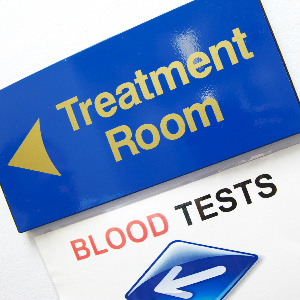GP practice funding docked for housing community nurses and pharmacists

Exclusive GP practices which have made rooms available for multidisciplinary working, as prioritised in the GP Forward View, are being hit with ‘draconian’ rent reimbursement cuts worth thousands of pounds.
Practices in the Midlands have seen £2,000 each docked from their annual rent reimbursements for allowing hospital phlebotomists, midwives, pharmacists and community nursing mental health teams to hot desk in some rooms when they are not being used.
Premises directions class this as outside core GMS services, but GP leaders said this interpretation goes ‘completely against the spirit’ of the NHS’s own Five Year Forward View.
Dr Uzma Ahmad, the GPC’s representative for the Black Country and medical secretary at Walsall LMC, said she asked NHS England to step in and support affected practices ‘immediately’ but was told that the valuation process was independent and out of their hands.
Reviews are undertaken by the district valuer, part of HMRC, which assesses notional rent payments for GP-owned premises every three years, or after improvement works.
Dr Ahmad told Pulse: ‘The district valuer has been to the practices with a cut to notional rent of £2,000, or more in some cases, depending on the list size.
‘They’re saying this is not part of a contractual requirement for the premises so this doesn’t come into notional rent, so it will not be reimbursed.’
In Halesowen, Dudley, one practice had its notional rent reduced by nearly £1,700. It was providing space for a midwife and community mental health team, as well as a phlebotomist from the hospital, because the practice is quite a distance away and there is no phlebotomy LES.
Another single-handed practice in Wolverhampton has been told they will lose £850 worth of notional rent for similar reasons, said Dr Ahmad.
But she explained these were not surplus rooms but rather ‘hot rooms’ that are ‘vacated for those hours by the practice clinical staff for this staff to use’.
Dr Ahmad said the practices are waiting to hear about reimbursements, otherwise they will consider charging rent or no longer hosting multidisciplinary staff.
She said: ‘How can we move on to work as hubs and have MCPs and other community providers working at scale if such hurdles are coming our way at every step and not foreseen by the planners of the future who talk so big .’
Worcestershire and Herefordshire LMCs secretary Dr Simon Parkinson said this was also ‘a significant issue within Herefordshire’, while ‘reviews are happening in Worcestershire’.
The GPC’s premises lead Dr Ian Hume, who said he has raised the issue with NHS England, told Pulse that the rules exist to prevent practices charging for space which is 100% rented and receiving reimbursements on top of this.
But he said he was ‘alarmed’ that the rules were being applied to practices sharing with NHS and third sector providers ‘which suggest that the [rent] abatement rules are being used in a draconian way to get out of paying practices notional rent’.
‘This goes completely against the spirit of the Five Year Forward View and many sustainability and transformation plans [STPs], where practices are being encouraged to share accommodation.
‘The NHS wishes these services to be provided and there must be no suggestion that practices are being left to subsidise other parts of the NHS,’ he said.
He added that if NHS England does not change its alternative use policy then ‘practice premises will not be used for anything other than a narrow definition of primary medical services’.
HMRC told Pulse that it provides ‘impartial valuation assistance’ on current market level rates, but are only required to assess parts of the premises ‘accepted and identified by NHS England’.
NHS England said that GP practices should charge for the space if they allowed it to be used for non-GP contract NHS services.
An NHS England spokesperson said: ‘The rules on reimbursement have not changed. Where services outside of general practice are provided on GP estate, then it is for the practice to charge the provider of those services for use of GP accommodation.
‘This has always been the case. Otherwise the taxpayer could be paying twice over – both through notional rent to practices for that space, and through the payments to those providers which will include covering the costs of their accommodation.’
How mulitidisciplinary team working will solve all ails of the NHS
The news comes as NHS England and the Government have touted multidisciplinary working in the NHS as a cure-all to achieve anything from seven-day access, the GP workforce crisis and unsustainable levels of demand on acute and urgent care services in the past.
This included health secretary Jeremy Hunt’s vision last year for GP ‘one-stop shops’, that would see outpatient services replaced with community clinics housed alongside GP practices, treating everything from diabetes to renal failure.
NHS England chief executive Simon Stevens even went so far as to say this would one day extend to ‘all of the -ologies’.
Regional NHS managers have listened, with many of the 44 regional Sustainability and Transformation Plans (STPs) for NHS services also floating the idea as one means to reach ambitious saving targets.
Meanwhile, the GP Forward View promised that thousands of pharmacists and mental health therapists would soon work in GP practices across England to relive GPs of workload.
Pulse July survey
Take our July 2025 survey to potentially win £1.000 worth of tokens












